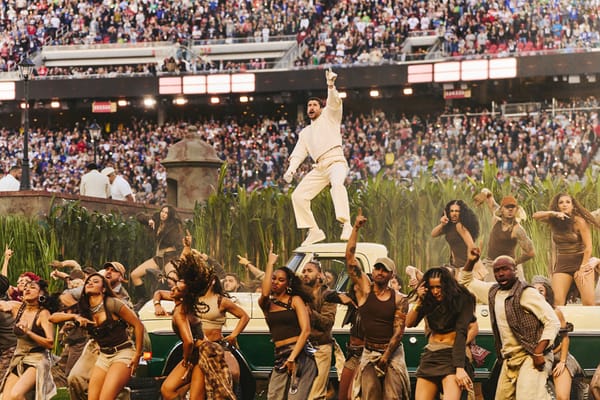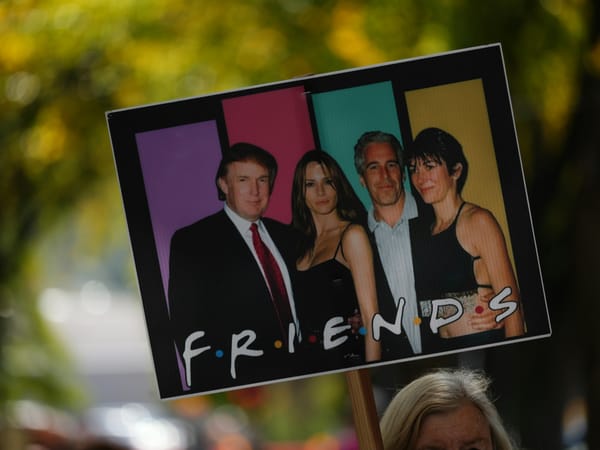David Fincher and Gendered Excess

There's a certain genre of film that I've actively avoided throughout my life, that being the excessively acclaimed, oversaturated collection of films that cinephiles relentlessly reference. It's not that I actually thought these films were bad; most were quite good or at least entertaining, but films like Fight Club (1999), Inception (2010), Pulp Fiction (1994), The Wolf of Wall Street (2013), and Seven (1995) make it abundantly clear that I am not their target audience. This genre is bursting with films made by men, for men, and while I can't help but remain biased in my dislike of this reality, certain directors like David Fincher disorient my presuppositions. Fincher’s Fight Club is a display of the grotesque at the highest order; it is not only visually clouded, but every corner of its narrative is unpleasant and decrepit, emphasizing a precedent he scratches at the surface of in Seven. He wipes this grimey slate completely clean with Gone Girl, creating a sterile, calculated narrative, one that is not overpowered with action, violence, and filth, but accentuated by it. It's hard for me to understand how I could feel so drastically different about two films made by the same man, but I believe it's less about the films themselves and more about their general reception. I wouldn't have hated Fight Club if not for sheer willpower, and an urge to combat the raging machismo that seeps from the film and its fans.
Fight club works to ignite the anarchistic, primal instincts of men, and it does so flawlessly. David Fincher is a meticulous advocate of the dank. In Seven, he showed this uncouth, gnarly descent through a glass window; the putrid reality of society is not us, but the rare, sadistic individuals who represent what we try so desperately to hide. Brad Pitt and Morgan Freeman are the righteous conquerors of twisted individuals, and who doesn't want to see themselves as Brad Pitt? Fight Club's narrator carves out a sizeable gap of normalcy into the narrative. He becomes quickly entangled with his shadow self, and then there is not one protagonist, but two, simultaneously representing the two facets of our identity that engage in a back-and-forth, fighting over absolute control of our consciousness. There’s a certain degree of existentialism embedded in the narrative, and it appears at face value as nihilistic, in that this acceptance of meaninglessness pries open the doors of a more elemental purpose. But it is almost the opposite. I wouldn't call Fight Club existential nihilism, but something like “illusionary nihilism” in that this self-directed purpose doesn't exist and never has. Tyler Durden reveals himself as a schizophrenic manifestation of mutiny, the narrator firing round after round at himself through a glass pane, and these internally contrived “values” also reveal their unreality. This dual-bladed resonance, found in both Durden and the narrator, is fused back together, the id and superego fatefully reunited. Durden calls their coterie “gods-unwanted children,” and the narrator's appearance of normalcy represents the degree to which every man, ranging from the clinically insane to the most mundane of individuals, feels at one point or another that the world has its sights set on their immediate downfall.
Fight Club is, to put it simply, gross. The violence that is both visually and thematically “just for the sake of it,” combined with the brown liquid that oozes from the desolate house's faucet, encompasses so much of the film that it's downright pedestrian, and it's hard for me to rail against this because that's the entire point. If someone swapped out Fight Club’s screenplay for a single sheet of paper, the word “egregious” the only word visible, typed out in Courier 12-point font, I would just shrug my shoulders and go about my day, everything exactly as it should be. It's evidently a movie made by men for men, but aren't most movies? I should still be able to wrench some enjoyment out of the thing, and yet I wasn't able to gain anything else from it, except an emphasis on what I already knew, which is that men like to punch each other and blow stuff up.




